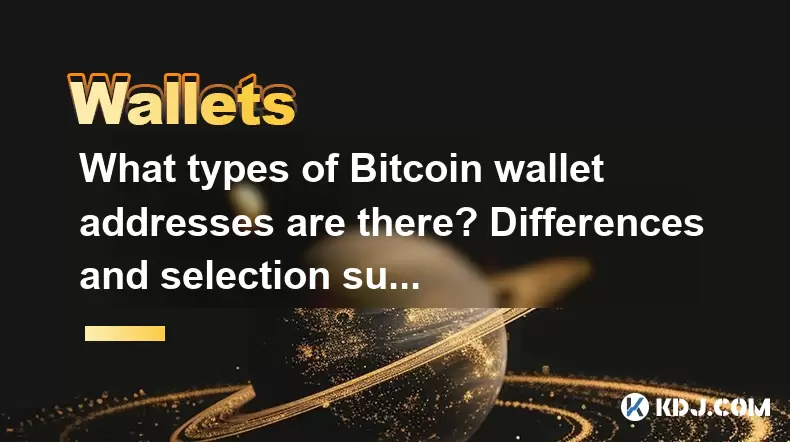-
 Bitcoin
Bitcoin $115000
0.12% -
 Ethereum
Ethereum $3701
4.50% -
 XRP
XRP $3.081
2.99% -
 Tether USDt
Tether USDt $0.0000
-0.01% -
 BNB
BNB $767.9
1.45% -
 Solana
Solana $169.5
3.13% -
 USDC
USDC $0.9999
0.01% -
 Dogecoin
Dogecoin $0.2106
4.30% -
 TRON
TRON $0.3334
1.62% -
 Cardano
Cardano $0.7564
2.54% -
 Stellar
Stellar $0.4165
0.76% -
 Hyperliquid
Hyperliquid $38.75
0.25% -
 Sui
Sui $3.593
3.00% -
 Chainlink
Chainlink $17.08
3.59% -
 Bitcoin Cash
Bitcoin Cash $573.6
4.35% -
 Hedera
Hedera $0.2508
-0.84% -
 Avalanche
Avalanche $23.07
6.46% -
 Ethena USDe
Ethena USDe $1.001
-0.02% -
 Litecoin
Litecoin $120.8
8.17% -
 UNUS SED LEO
UNUS SED LEO $8.943
-0.32% -
 Toncoin
Toncoin $3.400
-5.60% -
 Shiba Inu
Shiba Inu $0.00001255
1.54% -
 Uniswap
Uniswap $9.908
6.32% -
 Polkadot
Polkadot $3.718
2.10% -
 Monero
Monero $303.0
-0.74% -
 Dai
Dai $0.9999
-0.02% -
 Bitget Token
Bitget Token $4.392
0.91% -
 Cronos
Cronos $0.1403
6.31% -
 Pepe
Pepe $0.00001076
1.13% -
 Aave
Aave $267.2
1.80%
What types of Bitcoin wallet addresses are there? Differences and selection suggestions
Bitcoin wallet addresses include Legacy (starts with 1), SegWit (starts with 3 or bc1q), and Taproot (starts with bc1p), each offering different levels of security, fees, and privacy.
May 13, 2025 at 02:56 am

Bitcoin wallet addresses are crucial for securely storing, sending, and receiving Bitcoin. There are several types of Bitcoin wallet addresses, each with its own characteristics, security features, and use cases. Understanding these differences is essential for choosing the right type of address for your needs. In this article, we will explore the various types of Bitcoin wallet addresses, their differences, and provide suggestions on how to select the most suitable one.
Types of Bitcoin Wallet Addresses
Bitcoin wallet addresses can be categorized into three main types: Legacy Addresses, SegWit Addresses, and Taproot Addresses. Each type has evolved over time to improve security, efficiency, and functionality.
Legacy Addresses
Legacy Addresses, also known as P2PKH (Pay to Public Key Hash) addresses, were the first type of Bitcoin address introduced. They start with the number 1 and are the most widely recognized format. Legacy addresses are still in use today, but they have some limitations compared to newer address types.
- Format: Legacy addresses begin with the number 1 and are 34 characters long.
- Security: They use the ECDSA (Elliptic Curve Digital Signature Algorithm) for transaction signing.
- Transaction Fees: Legacy addresses typically have higher transaction fees due to their larger data size.
SegWit Addresses
SegWit Addresses, or Segregated Witness addresses, were introduced to improve the scalability and efficiency of the Bitcoin network. There are two types of SegWit addresses: P2SH-P2WPKH and P2WPKH.
- P2SH-P2WPKH Addresses: These addresses start with the number 3 and are backward compatible with older wallets. They are 34 characters long.
- P2WPKH Addresses: These addresses start with bc1q and are 42 characters long. They are native SegWit addresses and offer better efficiency.
SegWit addresses improve transaction malleability issues and reduce transaction fees by separating the signature data from the transaction data.
Taproot Addresses
Taproot Addresses, introduced with the Taproot upgrade, are the latest type of Bitcoin address. They start with bc1p and are 62 characters long. Taproot addresses enhance privacy and efficiency by allowing more complex smart contracts to be executed in a way that looks like a simple transaction.
- Format: Taproot addresses begin with bc1p and are 62 characters long.
- Security: They use Schnorr signatures, which are more efficient and provide better privacy.
- Transaction Fees: Taproot addresses can further reduce transaction fees due to their compact size and improved efficiency.
Differences Between Bitcoin Wallet Addresses
Understanding the differences between these address types is crucial for making informed decisions about which to use.
Security
- Legacy Addresses: Use ECDSA for transaction signing, which is secure but less efficient than newer methods.
- SegWit Addresses: Use ECDSA but separate the signature data, improving security and reducing the risk of transaction malleability.
- Taproot Addresses: Use Schnorr signatures, which are more efficient and provide better privacy and security.
Transaction Fees
- Legacy Addresses: Generally have higher transaction fees due to their larger data size.
- SegWit Addresses: Have lower transaction fees because they separate the signature data, reducing the overall size of the transaction.
- Taproot Addresses: Can further reduce transaction fees due to their compact size and improved efficiency.
Compatibility
- Legacy Addresses: Widely supported by all Bitcoin wallets and services.
- SegWit Addresses: Supported by most modern wallets and services, but older systems may not support them.
- Taproot Addresses: Supported by the latest wallets and services, but may not be supported by older systems.
Privacy
- Legacy Addresses: Offer basic privacy features but are less efficient in hiding transaction details.
- SegWit Addresses: Improve privacy by reducing the visibility of transaction data.
- Taproot Addresses: Enhance privacy by making complex transactions look like simple ones, making it harder to track transaction details.
Selecting the Right Bitcoin Wallet Address
Choosing the right type of Bitcoin wallet address depends on your specific needs and the level of security, efficiency, and privacy you require.
For Everyday Use
If you are using Bitcoin for everyday transactions, SegWit Addresses are a good choice. They offer a good balance of security, efficiency, and compatibility with most modern wallets and services.
- Steps to Create a SegWit Address:
- Open your Bitcoin wallet application.
- Navigate to the "Receive" or "Generate Address" section.
- Select "SegWit Address" if available.
- Copy the generated address and use it for receiving Bitcoin.
For Long-Term Storage
For long-term storage, Taproot Addresses are recommended due to their enhanced security and privacy features. They are ideal for cold storage solutions where you want to minimize the risk of your transactions being tracked.
- Steps to Create a Taproot Address:
- Ensure your wallet supports Taproot addresses.
- Navigate to the "Receive" or "Generate Address" section.
- Select "Taproot Address" if available.
- Copy the generated address and use it for receiving Bitcoin.
For Compatibility with Older Systems
If you need to interact with older systems or wallets that may not support newer address types, Legacy Addresses are the best choice. They are widely supported and ensure compatibility.
- Steps to Create a Legacy Address:
- Open your Bitcoin wallet application.
- Navigate to the "Receive" or "Generate Address" section.
- Select "Legacy Address" if available.
- Copy the generated address and use it for receiving Bitcoin.
Frequently Asked Questions
Q: Can I convert a Legacy Address to a SegWit or Taproot Address?
A: No, you cannot directly convert one type of address to another. However, you can transfer your Bitcoin from a Legacy Address to a new SegWit or Taproot Address by sending the funds to the new address.
Q: Are there any risks associated with using newer address types like SegWit and Taproot?
A: The main risk is compatibility. Older wallets and services may not support SegWit or Taproot addresses. However, as long as you use a modern wallet that supports these address types, the risks are minimal.
Q: How can I check if a wallet supports Taproot addresses?
A: You can check the wallet's documentation or website for information on supported address types. Most modern wallets will explicitly state if they support Taproot addresses.
Q: Is it possible to use multiple types of addresses in the same wallet?
A: Yes, many modern wallets allow you to generate and use multiple types of addresses within the same wallet. This can be useful for different purposes, such as everyday transactions and long-term storage.
Disclaimer:info@kdj.com
The information provided is not trading advice. kdj.com does not assume any responsibility for any investments made based on the information provided in this article. Cryptocurrencies are highly volatile and it is highly recommended that you invest with caution after thorough research!
If you believe that the content used on this website infringes your copyright, please contact us immediately (info@kdj.com) and we will delete it promptly.
- Bitcoin, Fed Rate Cut, and Crypto Stocks: A New Yorker's Take
- 2025-08-05 14:50:12
- Police, Cryptocurrency, Bitcoin Windfall: Unexpected Gains and Cautionary Tales
- 2025-08-05 15:30:12
- MAGACOIN: The Next Shiba Inu ROI? A Crypto Presale Deep Dive
- 2025-08-05 15:30:12
- Bitcoin, Kiyosaki, and the August Curse: Will History Repeat?
- 2025-08-05 14:50:12
- Crypto Airdrops: Your August 2025 Guide to Free Tokens & Opportunities
- 2025-08-05 13:45:13
- Luxury Dining Reimagined: St. Regis Singapore & Marriott's Culinary Celebration
- 2025-08-05 13:45:13
Related knowledge

How to add TRC20 token to Trust Wallet?
Aug 04,2025 at 11:35am
Understanding TRC20 and Trust Wallet CompatibilityTrust Wallet is a widely used cryptocurrency wallet that supports multiple blockchain networks, incl...

What is a watch-only wallet in Trust Wallet?
Aug 02,2025 at 03:36am
Understanding the Concept of a Watch-Only WalletA watch-only wallet in Trust Wallet allows users to monitor a cryptocurrency address without having ac...

Why can't I connect my Trust Wallet to a DApp?
Aug 04,2025 at 12:00pm
Understanding DApp Connectivity and Trust WalletConnecting your Trust Wallet to a decentralized application (DApp) is a common process in the cryptocu...

How to fix a stuck pending transaction in Trust Wallet?
Aug 03,2025 at 06:14am
Understanding Why Transactions Get Stuck in Trust WalletWhen using Trust Wallet, users may occasionally encounter a pending transaction that appears t...

What is a multi-coin wallet in Trust Wallet?
Aug 03,2025 at 04:43am
Understanding Multi-Coin Wallets in Trust WalletA multi-coin wallet in Trust Wallet refers to a digital wallet that supports multiple cryptocurrencies...

How to switch between networks in Trust Wallet?
Aug 02,2025 at 12:36pm
Understanding Network Switching in Trust WalletSwitching between networks in Trust Wallet allows users to manage assets across different blockchains s...

How to add TRC20 token to Trust Wallet?
Aug 04,2025 at 11:35am
Understanding TRC20 and Trust Wallet CompatibilityTrust Wallet is a widely used cryptocurrency wallet that supports multiple blockchain networks, incl...

What is a watch-only wallet in Trust Wallet?
Aug 02,2025 at 03:36am
Understanding the Concept of a Watch-Only WalletA watch-only wallet in Trust Wallet allows users to monitor a cryptocurrency address without having ac...

Why can't I connect my Trust Wallet to a DApp?
Aug 04,2025 at 12:00pm
Understanding DApp Connectivity and Trust WalletConnecting your Trust Wallet to a decentralized application (DApp) is a common process in the cryptocu...

How to fix a stuck pending transaction in Trust Wallet?
Aug 03,2025 at 06:14am
Understanding Why Transactions Get Stuck in Trust WalletWhen using Trust Wallet, users may occasionally encounter a pending transaction that appears t...

What is a multi-coin wallet in Trust Wallet?
Aug 03,2025 at 04:43am
Understanding Multi-Coin Wallets in Trust WalletA multi-coin wallet in Trust Wallet refers to a digital wallet that supports multiple cryptocurrencies...

How to switch between networks in Trust Wallet?
Aug 02,2025 at 12:36pm
Understanding Network Switching in Trust WalletSwitching between networks in Trust Wallet allows users to manage assets across different blockchains s...
See all articles

























































































